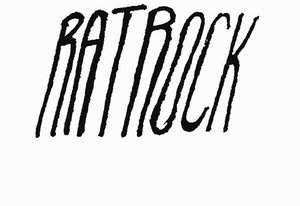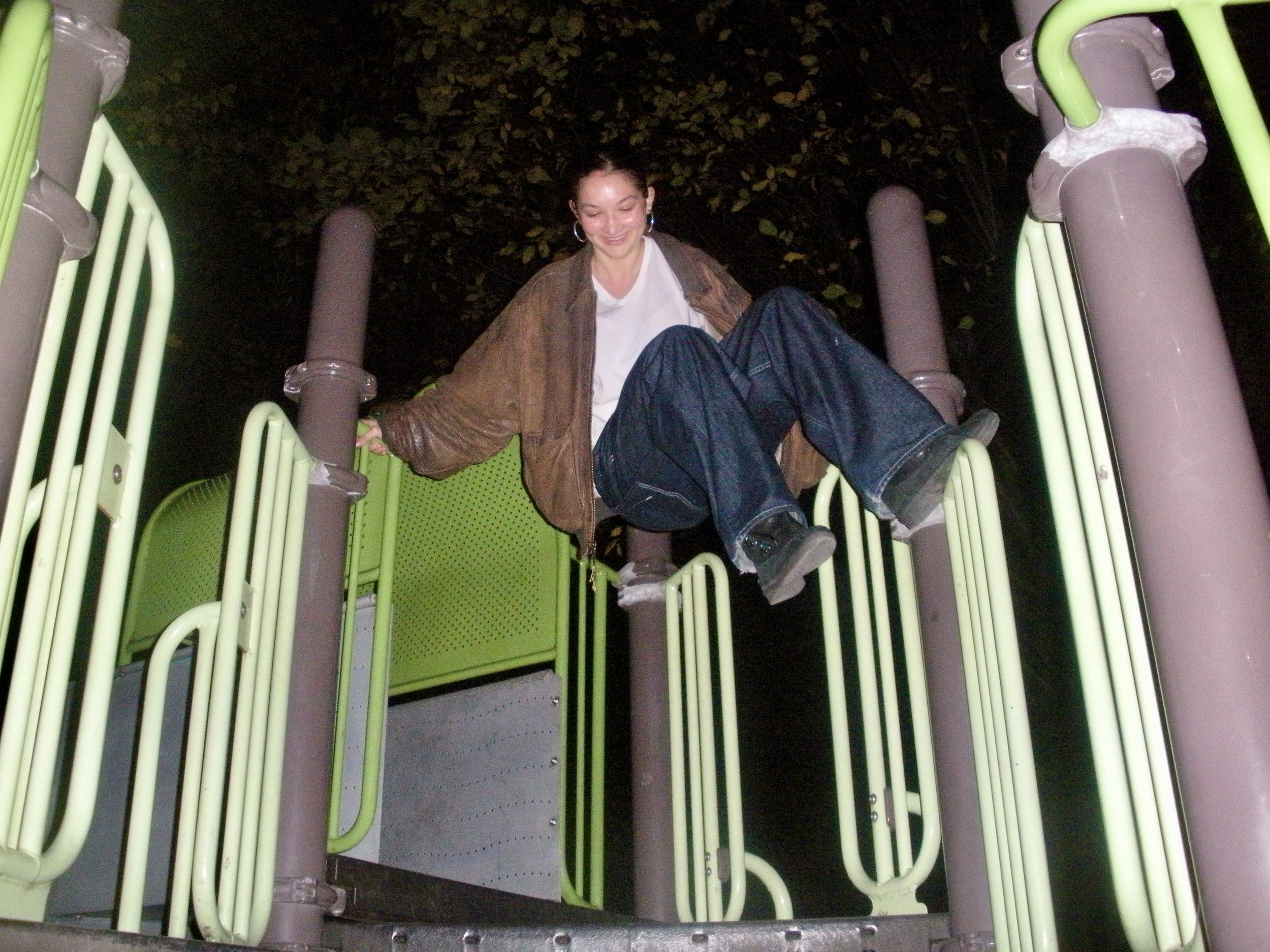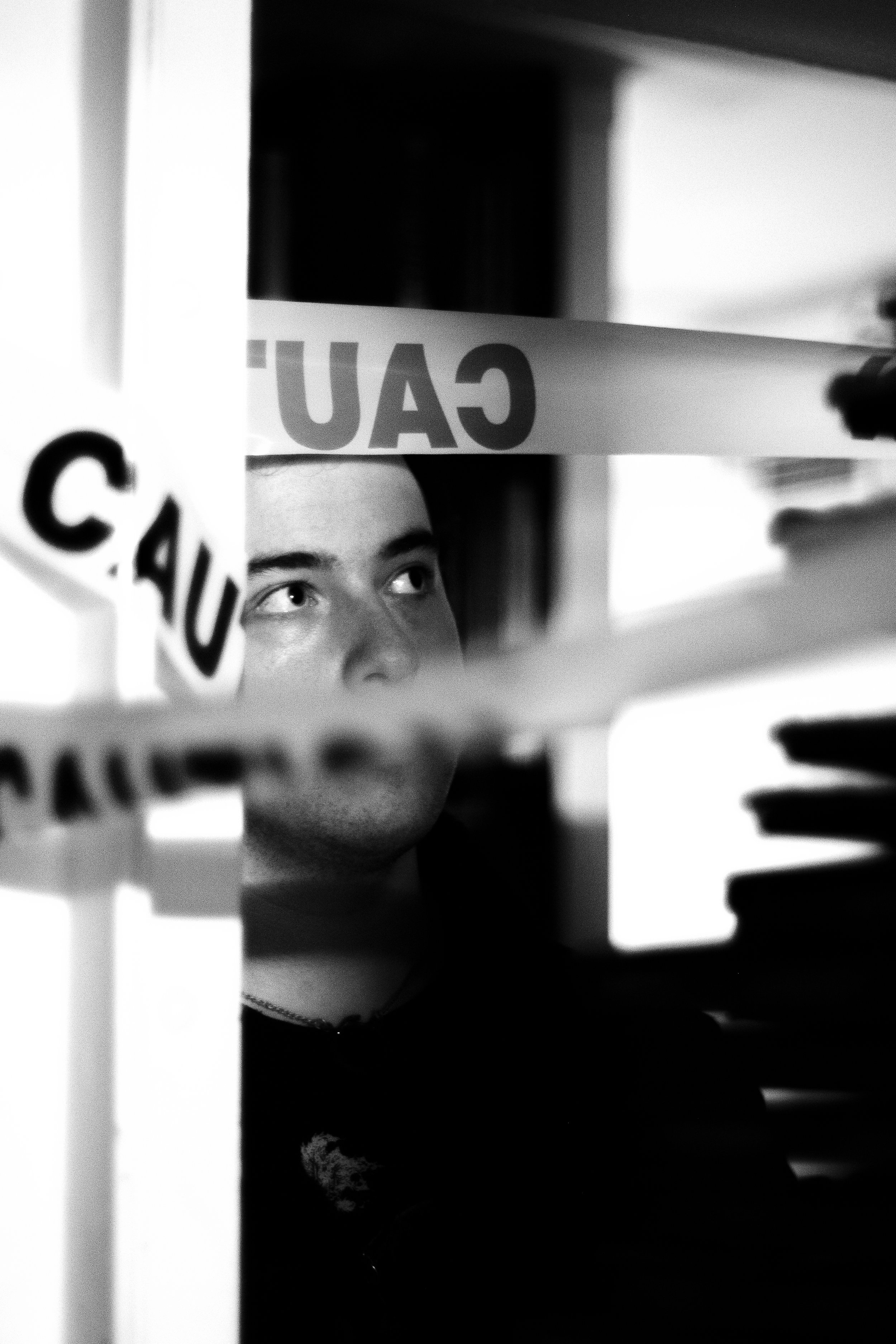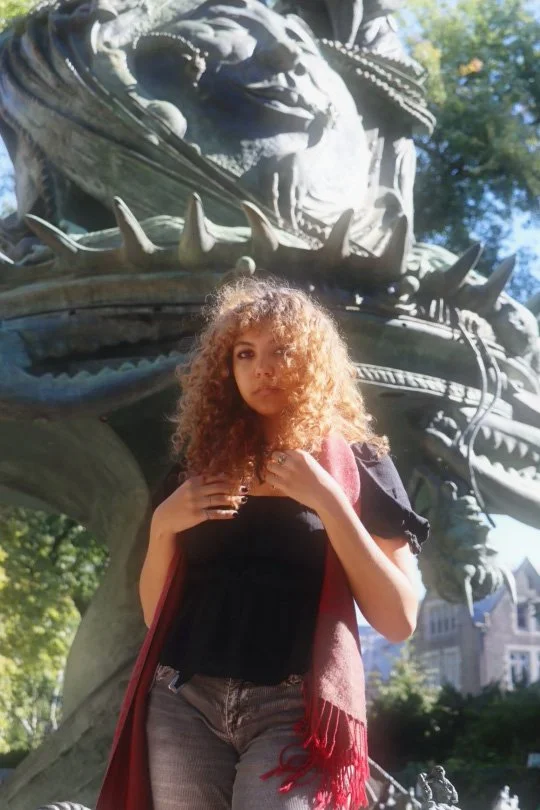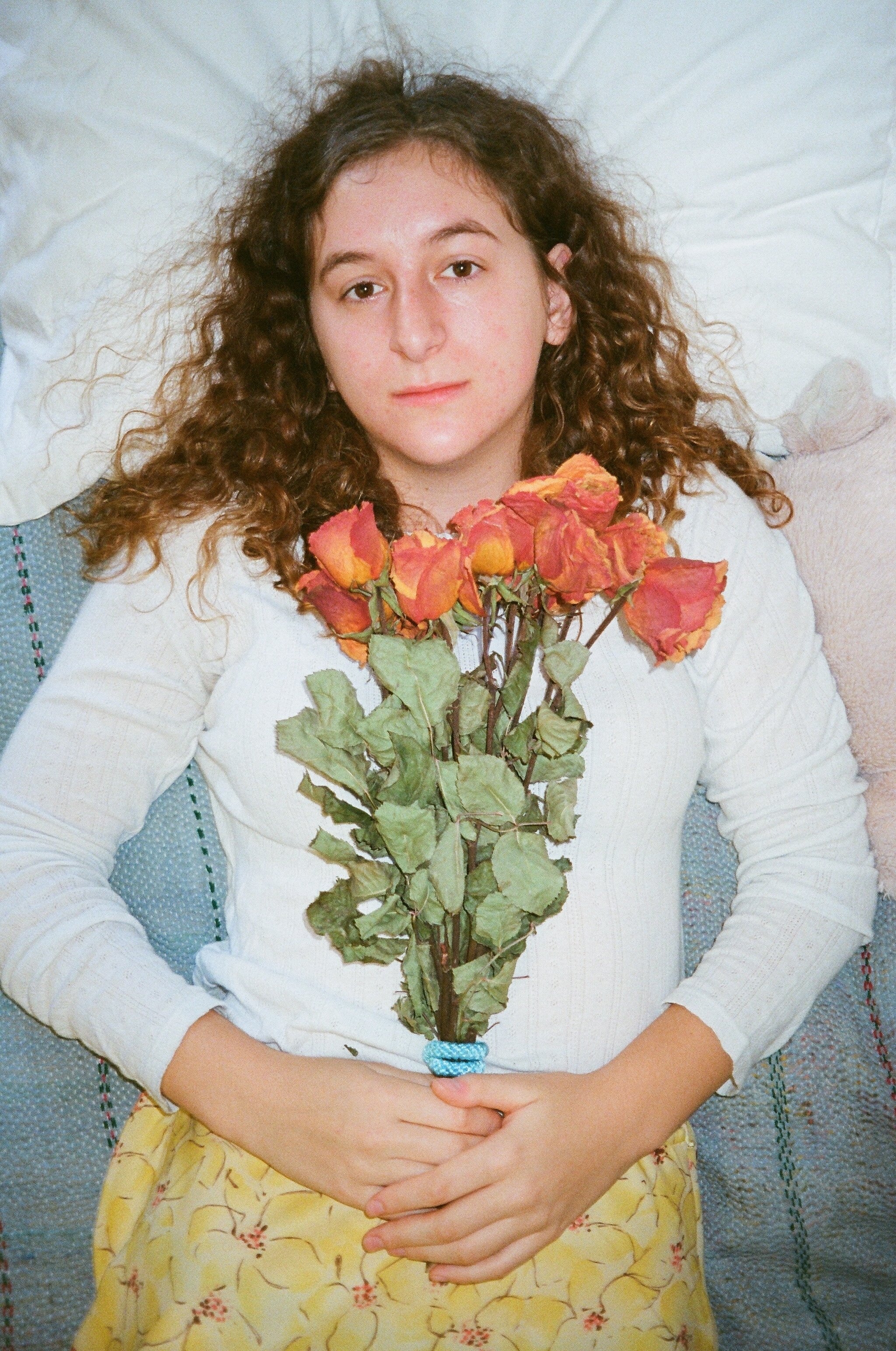
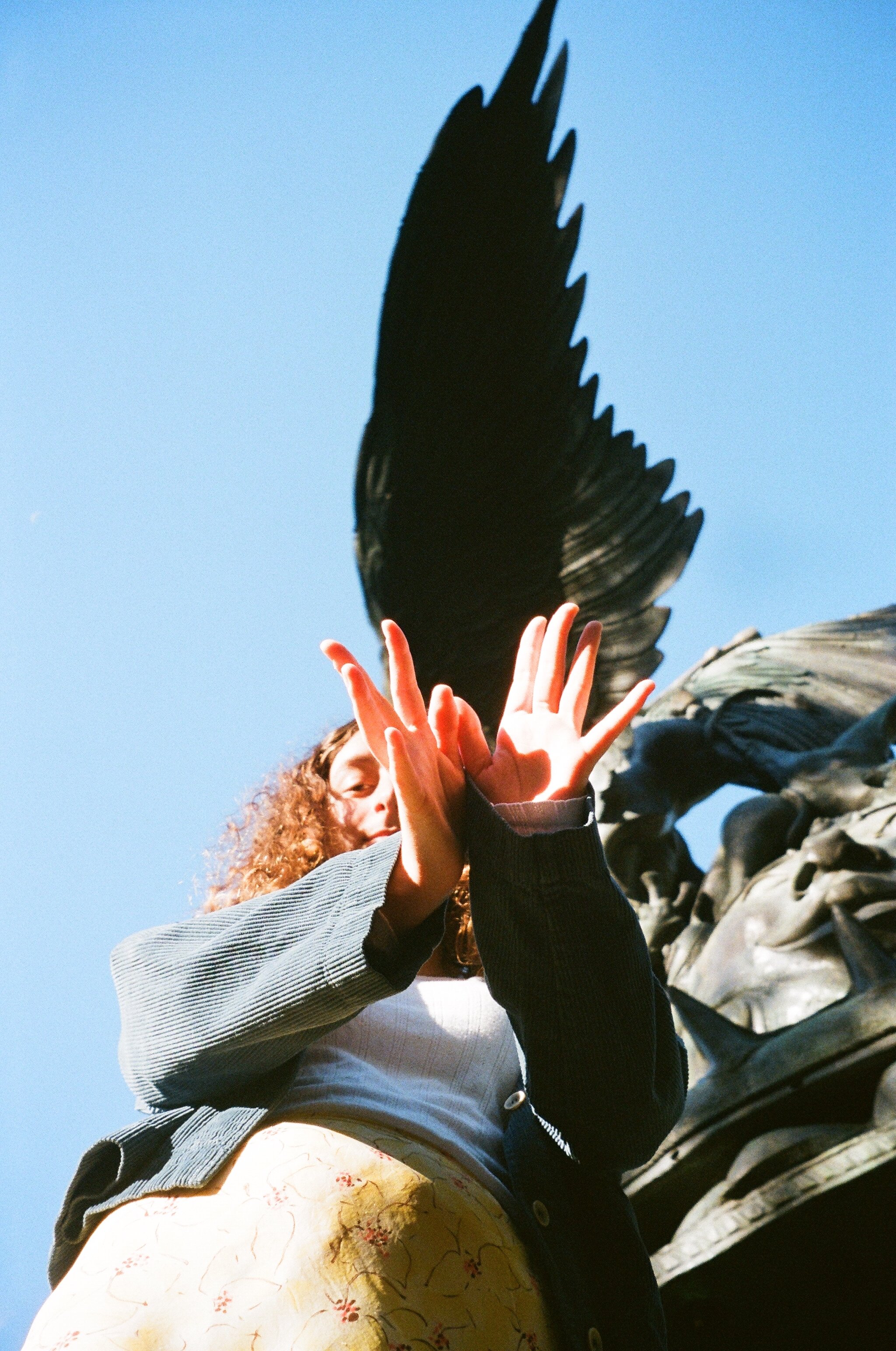
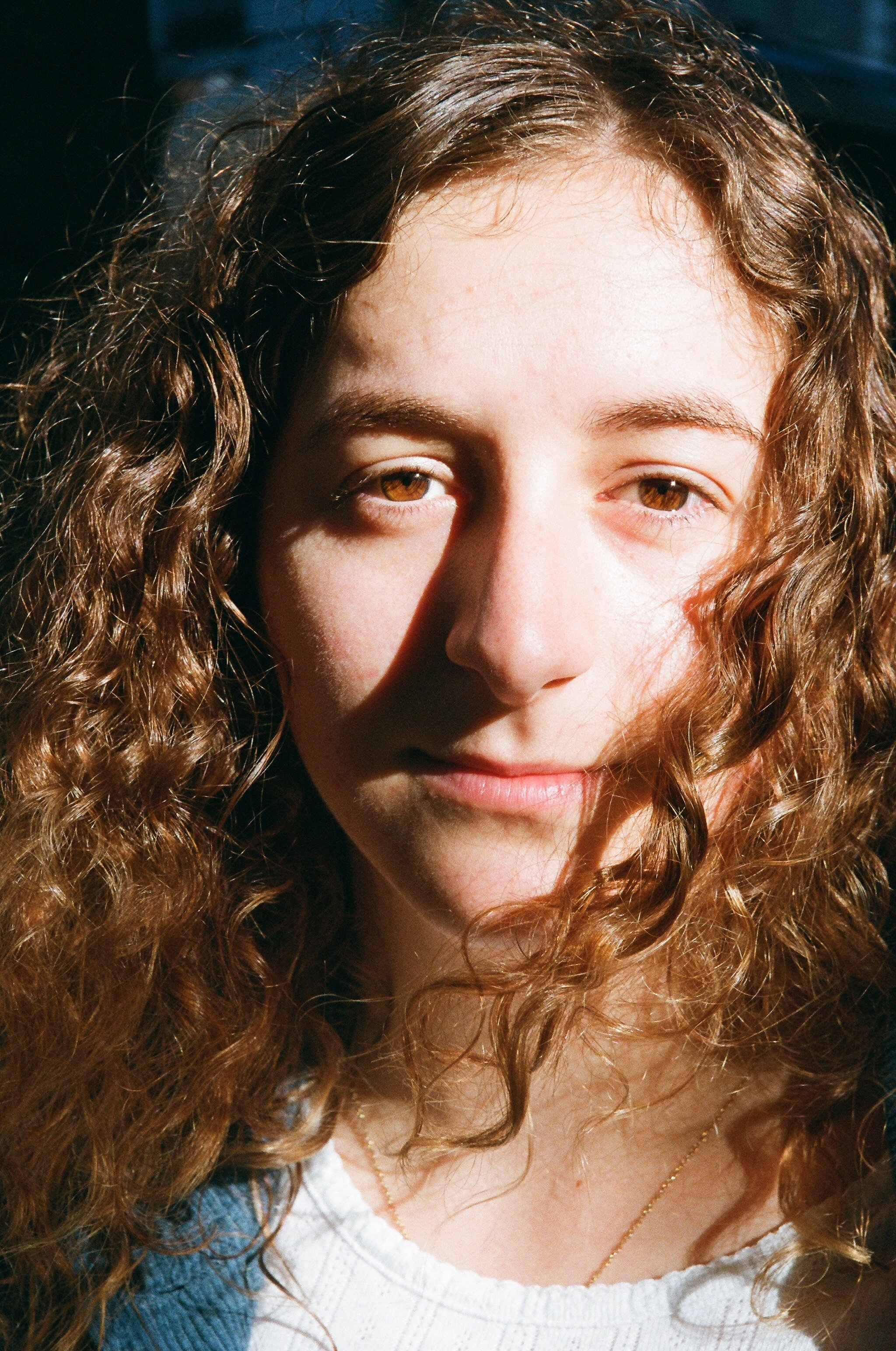
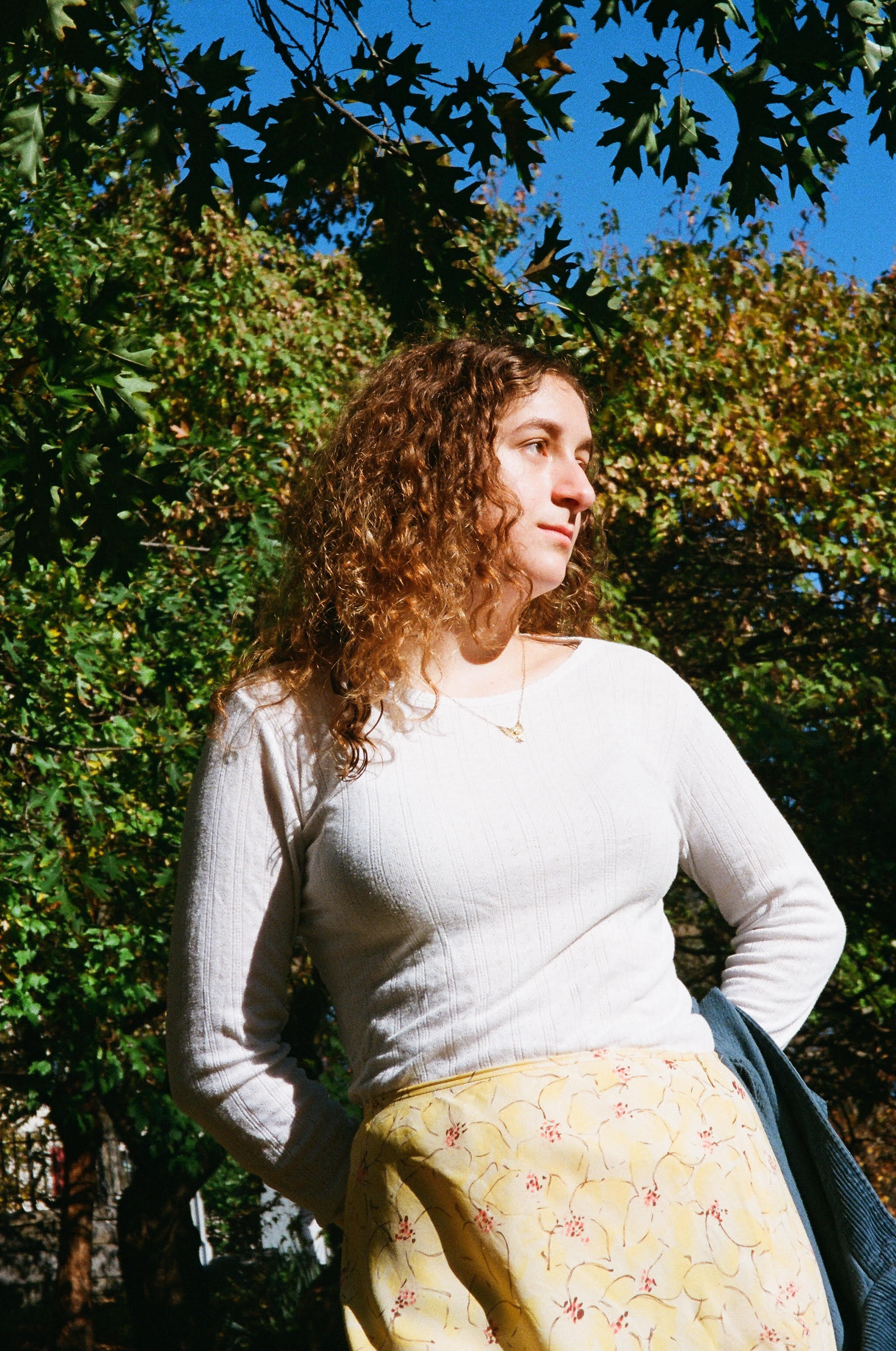
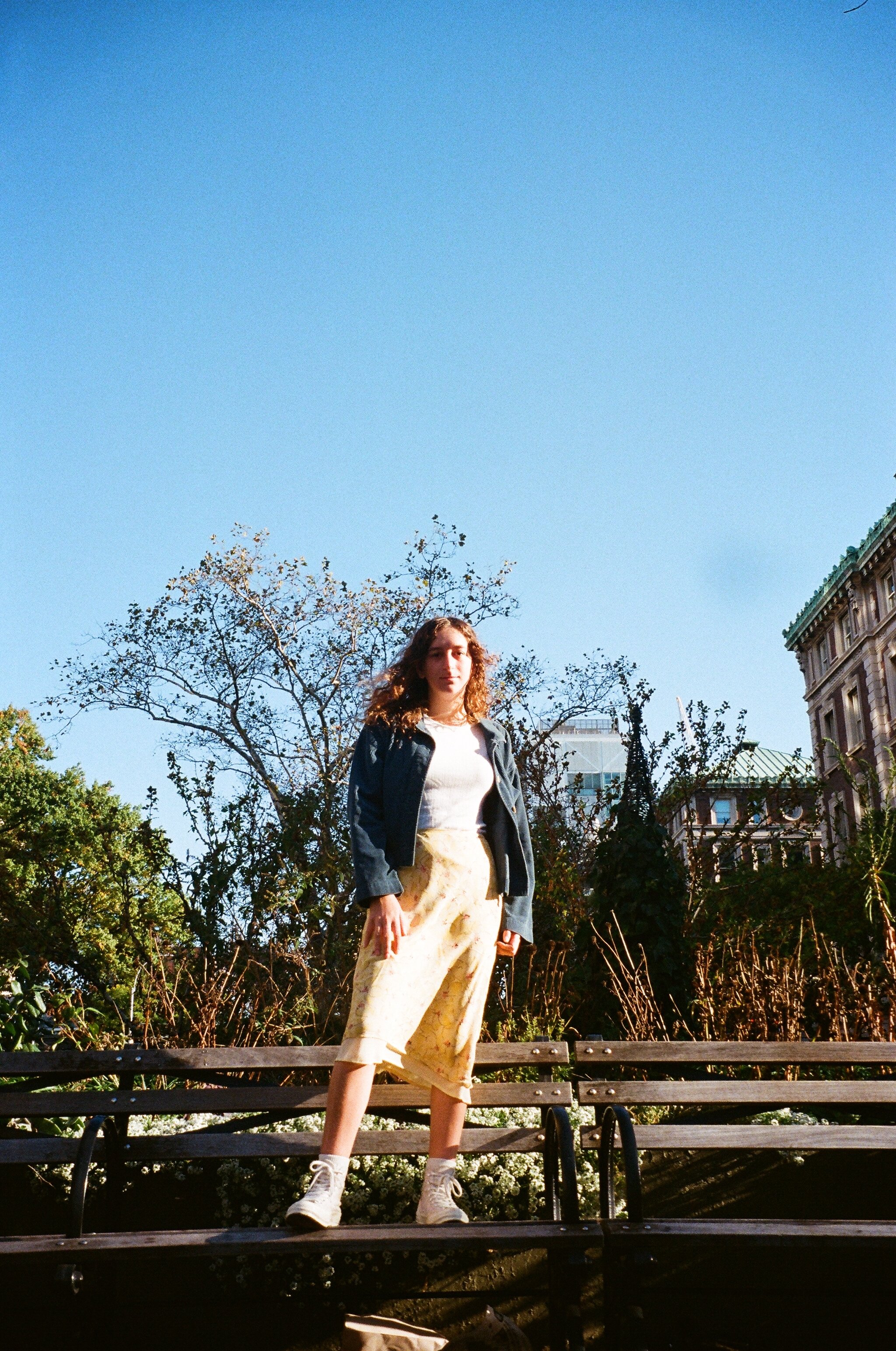

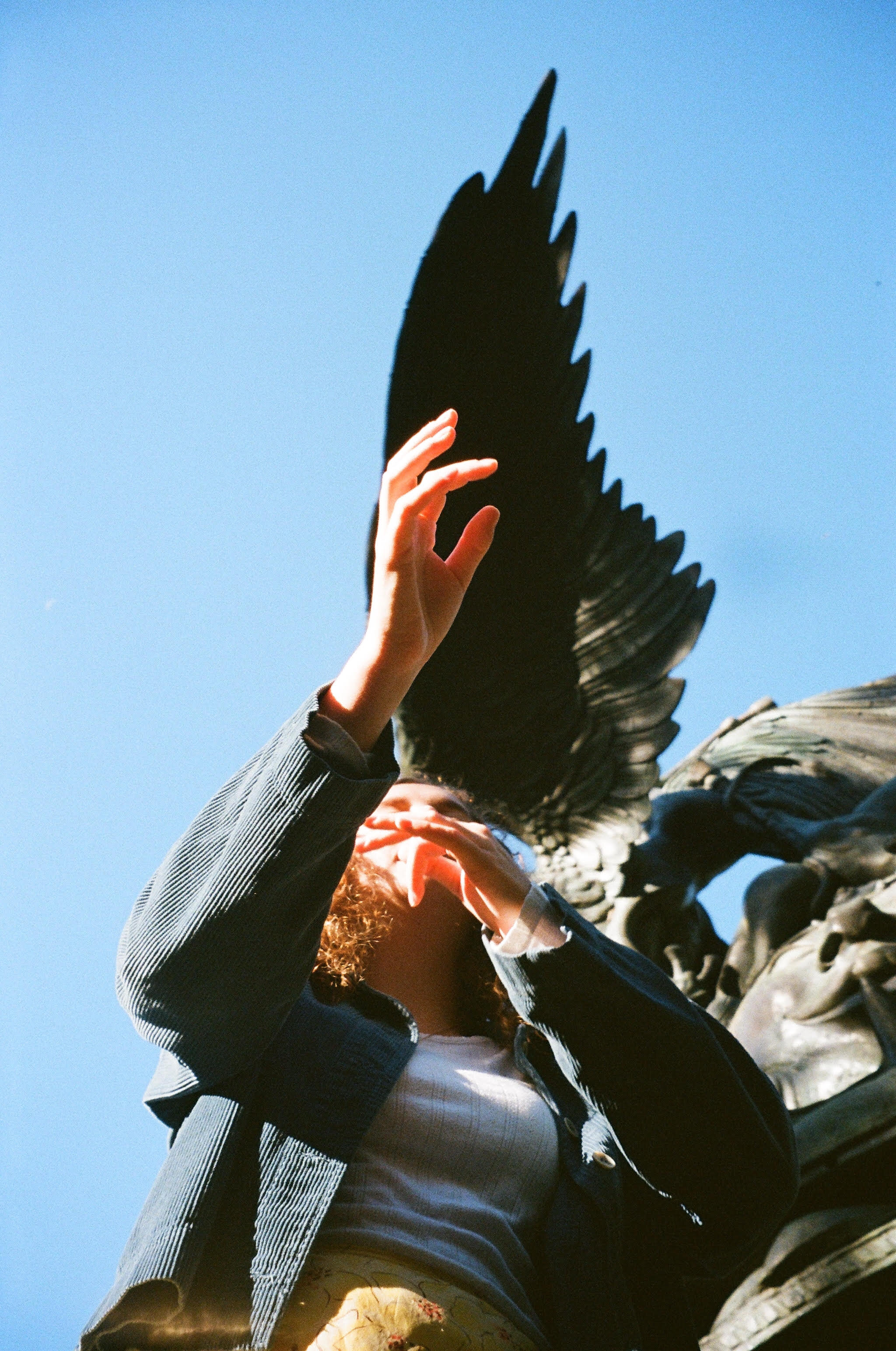
In conversation with Elizabeth Meyer
Photographs by Ellis Sandro Shapiro-Barnum
Could you start by telling me a little bit about yourself, whatever that means to you?
My name is Olivia, I’m from California. My biggest identities [that] influence my art are being a young person, being a girl, and being queer. I don’t monopolize identities, but I feel part of these communities based on those [identities], and they definitely kind of influence how I perceive things, and think about things, and interact with things.
Is photography your main medium?
Yes. I started doing photography and filmmaking in high school. I wasn’t introduced to photography in a clinical art school way, I was introduced to it as something my peers were doing and that girls that felt like my peers were doing. I grew up with Rookie magazine and that was this great equalizer [to me]. [It] really emphasized young queer voices and female voices and non male voices. To me, it felt like “Of course I could take pictures!” It felt like there were so many people that were doing [it] and they were doing it so well and so beautifully and so powerfully. I just understood things as yes, the female gaze is something that of course I am going to try to reclaim and explore what that means
I [also] took an art class [in high school] where you had to put together a portfolio with all different mediums, so I put together a sewing project, which was out of my element. I’ve done some drawing and other things But mainly photography and filmmaking are my big artistic practices. I’ve been doing creative writing more recently, but I’m still feeling that one out.
What is your definition of perception, and how does that fit into creation—especially through photography?
I think that photography is a medium about looking. Photography is so rooted in reality and observing reality, that there is less freedom inherent in the medium to make it about inner emotional content. To some extent, photography is always documentary because you have to work with what exists in the real, tangible world—and then distort that in some way to create an artistic statement. I think [in] the way photography is thought of, we imagine that the camera is your eye, and that's what’s dominant. The most important part of taking a photo is thinking about how the camera views something and, to me, that feels distant from what I think good photography is. I hope to use my photography as an empathetic, bodily observation rather than an objectifying tool. I’m trying to reframe ideas that the camera is the most important tool. [When taking photos of someone] I think about how I would naturally perceive and interact with them. The camera comes ranked lower in importance than my personal, empathetic, human gaze.
How do you take your photos?
I’m not thinking [about doing] something that’s never been done before or what the queer/female way of looking at [a subject is]. I retrospectively look back at things and be like “Oh, I looked at that thing in a way that is different from how another person would look at it,” but I don't think that’s an active goal of mine, to counter some sort of hegemony in the photo world. I’m just like “What makes sense in this [photo]?”, and then I can write an artist’s statement that applies that [sense] onto [the photo].
[In photography], I really believe that bodily intuition is much more important than being a rational thinker. That may just be an art thing but, to me, feeling comes over technical competence or objective analysis or trying to do something the “best” way. Being the “best” at something is so emphasized [in our society], and I think you can technically be the “best,” but that doesn't necessarily give you the skill to create an empathetic photo which, to me, is the most important part of photography. The best picture is the one that is most empathetic. So I'm cognizant of trying to look at things in a way that is bodily first and technical second. Photography, in a lot of ways, is dominated by the male gaze because its been appropriated as a tool for the male gaze but i don't think it has to be like that but I think the goal of a female photographer or anyone who is trying to conceive a photograph that exists outside of the male gaze has to think about it as an empathetic tool rather than an objectifying tool.
How do you form an empathetic connection with a subject when photographing individuals whose identities differ from your own?
I think that empathy is not bound by identities. I think that I need to acknowledge that there are narratives that I won’t necessarily perceive that the person I’m photographing perceives because of their role or how they exist in society. As empowering as it is to be a young, queer woman, it means that I have not existed in a lot of different identities. I think acknowledging that, and believing that the photographer is not the most important person when taking a photo, is crucial. Like, [when I’m taking pictures], I feel like I’m a medium somehow, or messenger. The act [of photography] is of an interaction. I try to take photos that feel like they are an exchange rather than something that’s imposing on someone or taking from someone. doesn’t have to be about giving or receiving. It can be something mutual, not a give or take exchange.
